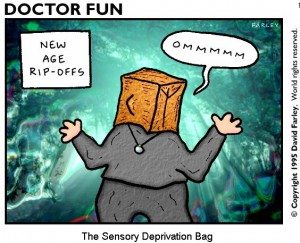 And the winner is….Mantra!
And the winner is….Mantra!
Grammys season is officially underway, and once again, mantra music represents — more than ever before. Nearly two dozen bhakti-flavored releases are among the list of contenders in early voting for the 2016 Grammys Best Album Nominees in the New Age and World categories, for which first-round voting by members of the National Academy of Arts & Sciences (NARAS) ends Nov. 4.
Judging by the breadth and diversity of the bhaktified music releases on the first-round ballots, the “non-genre” of kirtan/mantra/sacred chant is alive and well — from the vantage point of the commercial recording industry, at least. The albums that we would place under a broad umbrella of bhakti or bhakti-related mostly fall into the New Age category in Grammy world, though a few of the bhakti titles are found in the World Music category. (More on the odd categorization of kirtan here.)
I know what some of you are thinking…”Who cares about the Grammys?! This is BHAKTI. It’s not about commercialism, or winning awards, or being “the best” of anything; it’s about devotion and service!” I hear you. Really I do. The way I see it, if the Grammys help bring attention to the sacred practice of chanting and unlatch the gates for even one person, is that a bad thing? Tell us what you think in the comments.
 Who Made the List?
Who Made the List?
First things first. One of the biggest surprises on the list — and perhaps the best news for bhakti purists — is second-generation Krishna kid Madi Das, whose charity album “Bhakti Without Borders,” produced by Dave Stringer, features duets with a host of female Vaisnava vocalists singing traditional Krishna bhajans. If we had to pick a favorite among all of these contenders, “Bhakti Without Borders” would be it. We love everything about this album, and P.S., ALL of the profits benefit a school for girls in India (which is most of the proceeds, because ALL of the musicians on this record offered their time as seva). Now THAT is bhakti.
Also up for consideration are widely known artists like Deva Premal & Miten with Manose (“Songs for the Sangha“) and Russill Paul (“Mantra Magic“) alongside up-and-comers like vocalist Tina Malia (“Bridge to Vallabha“) and folkish singer/songwriter Brenda McMorrow (“My Heart Bows Down to You“). The many flavors of Sufism are nicely represented with “Sufi Kirtan,” from newlywed folk/world/rocker duo HuDost — marked by the otherworldly vocal magic of Moksha Sommer — and a new-to-us band called Rocqawali for “Sufi Rock ‘n’ Roll,” which seamlessly blends powerful Pakistani qawali music with 70’s-style rock. Representing the Jewish tradition of sacred chant is the Kirtan Rabbi Andrew Hahn’s “Nondual,” where ancient Hebrew prayers meet modern rock and reggae. Bhaktified dance music — yet another subcategory in the chant world (is that a sub-non-genre?) — is there too, with Marti Nikko and Dj Drez’s chant-dance fantasy “Dreaming in Sanskrit” and Desert Dwellers’ electronicized house mix, “The Great Mystery.”
In the Kundalini corner, Simrit’s “From the Ancient Storm,” White Sun‘s self-titled debut album, and Sirgun Kaur’s “Dayaal” are in the running along with the ever-popular duo Mirabai Ceiba (for “Sevati“). On the instrumental end, Bansuri flute master Manose, who has played for a decade with Deva Premal & Miten, is on the ballot for “Call Within,” and Hans Christian, master of too many instruments to name here, made the list for “Nanda Devi.” An Indian classical flutist known simply as Flute Raman is found on the World ballot for an album of traditional bhajans called “Krishna Lila.”
But wait there’s more. While we can’t in any stretch of the word consider them “kirtan,” a few others on the ballots are worth noting for their inclusion of mantras in some tracks or their ties to the bhakti world, including: Peter Kater, who has three — yes three! — albums in the running for the nomination in New Age (“Heart of Silence,” “Etheria,” and “Love;” Daniela De Mari & Breath of Life for “Awakening;” David Vito Gregoli for the ambient “Om Land,” and a Classical Indian instrumental disc featuring Saraswathi Ranganathan on veena called “Refreshing Raga Blues.”
All told, the bhakti-ish contenders represent roughly 15 percent of the total New Age list of 116 titles and only a few of the 122 entries on the World ballot. The full lists cover a lot of musical ground, everything from spoken-word meditations to ethereal shamanic ritual music to ambient instrumentalism to synthesized electronica. Among the broadly defined kirtan-related releases are some real gems that deserve a closer look, and The Bhakti Beat will be doing that on a weekly basis between now and Dec. 7, when the Grammy nominations are announced.
We’ll also give one Grammy-contending CD away each week, so stay tuned to our facebook and other social media pages to enter the contests. (Links below.)
With so many bhaktified releases in the running for a nomination, this year marks a new high for mantra music in Grammy world. But it’s certainly not the first time the chant community has gotten Grammy fever. Krishna Das quite famously snagged one of the coveted Grammy nominations in 2012 for “Live Ananda,” and made history by being the first kirtan artist to perform at the Grammys (aired on the webcast). You saw that, right? A decade earlier, Jai Uttal was the first in the kirtan “non-genre” to be nominated for a Grammy, for his pioneering record, “Mondo Rama.”
Last year, more than a dozen bhakti albums made the first ballot, and a record called “Bhakti” by Paul Avgerinos — a new-agey fusion of Christianized chants and ambient electronica that was about as far from traditional kirtan as you can get — made the cut to be nominated but did not win the Grammy.
What It Means
What does it mean to be on the first-round ballot? Essentially, it means that you met the eligibility qualifications and got your entry in on time. Ballots were sent out Oct. 14 to NARAS members, who have until Nov. 4 to cast their ballot for the album they’d like to see nominated for the Grammy in each category. There are about 30 Grammy categories altogether, including the biggies, Album of the Year and Best New Artist. In the New Age and World categories, only one Grammy is given: Best Album.
Let’s state that again so there is no confusion: the first-round ballot voting is to decide who among the contenders will be NOMINATED for a Grammy in their respective categories. It’s the first step. The nominations will be announced Dec. 7, then NARAS members vote for one nominee in each category to receive the Grammy — the music industry’s highest award. The Grammys telecast this year will be on Feb. 15.
So tell us Bhakti Beaters: Who would be YOUR pick for a Kirtan Grammy?
_____________________
The Bhakti Beat welcomes your support! We are non-commercial and not-for-profit, a free service to the bhakti community that is completely self-funded save for the loving contributions of Bhakti Beaters like you. Your support is critical — please share the Beat with your bhakti peeps, connect with us on social media (links below), and consider a one-time or recurring donation (DONATE HERE) to help us keep this bhav boat afloat. All contributions are used exclusively to cover the direct expenses of bringing you News, Reviews, Interviews and Videos from the kirtan and mantra-music world. Thank you from the bottom of our bhav brain, heart and soul. In loving service...
Hare Krishna Hare Krishna Krishna Krishna Hare Hare Hare Rama Hare Rama Rama Rama Hare Hare Dear Lord, kindly engage me in your service. Follow The Bhakti Beat on facebook Follow The Bhakti Beat on twitter Subscribe to our YouTube channel Follow Bhakti_Beat_Brenda on Instagram Find us on Google+












